Being HeardSample

SYMPTOMS OF A SOUL WOUND
Soul wounds have symptoms just like physical wounds. Although, they may be harder to see. Watch the video below to learn about the three main symptoms of soul wounds.
WHAT MAKES SOME WOUNDS OF THE SOUL MORE SERIOUS?
Click the arrows on the left or right to continue.

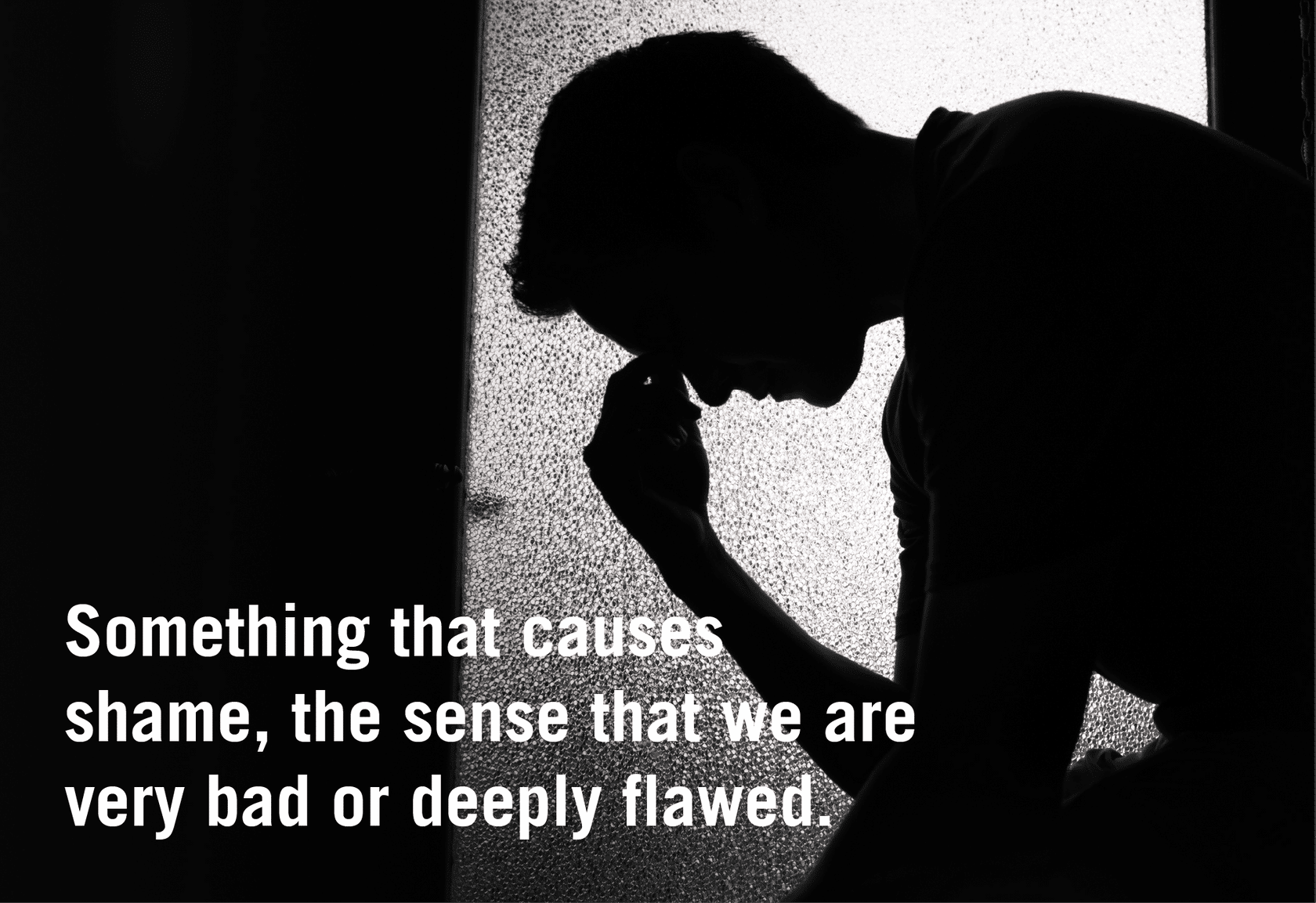
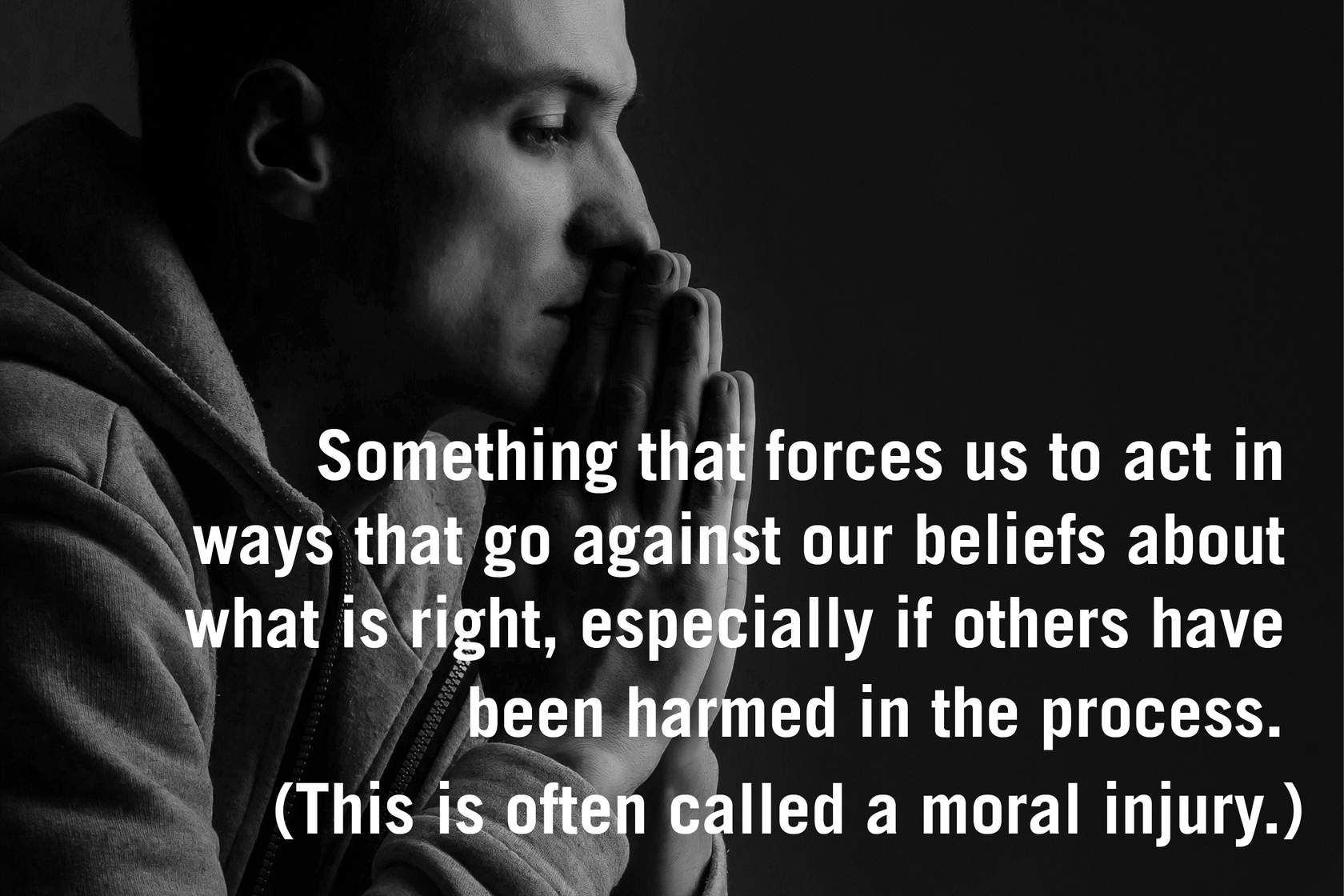
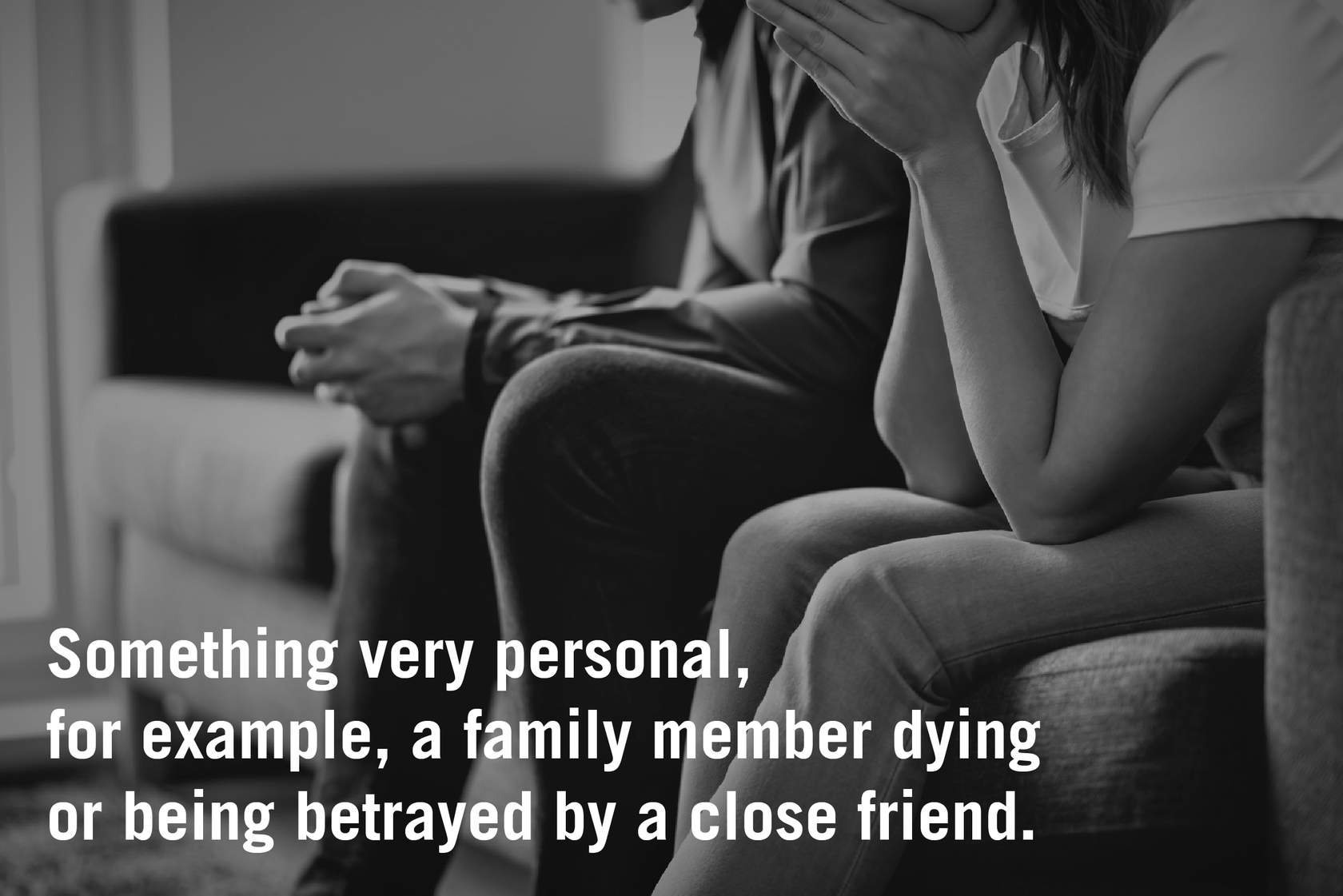




People react to painful events differently. Two people may go through the same event, but one may have a severe reaction while the other is not affected much at all. A person is likely to react more severely if he or she:
- Has other mental or physical problems
- Naturally tends to feel strong painful emotions
- Faced trauma earlier in their lives
- Does not have a social support network
MORAL INJURY
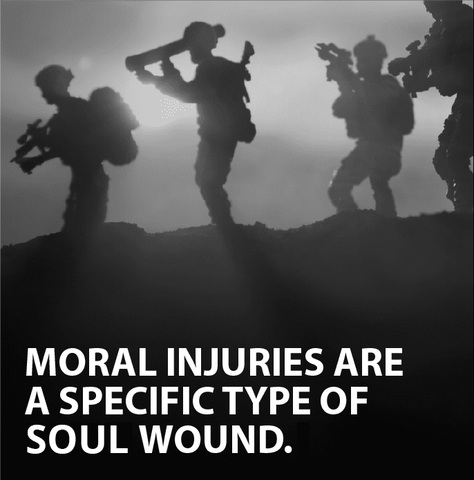
Many people describe moral injury as a type of “soul wound.” It happens when people believe they have acted in ways that go against their deepest beliefs about what is right and good, and when others have been harmed as a result.
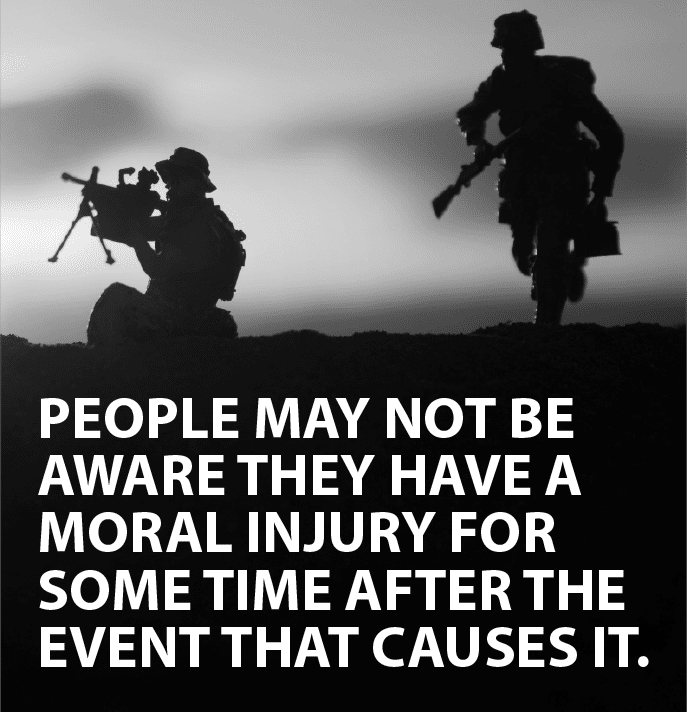
Eventually, they begin to experience emotional pain from the deep guilt and shame. Guilt is feeling that we have done something we think is bad. Shame is the feeling that we are bad or deeply flawed.
The Bible is full of examples of people pouring out their hearts to God. For example, the psalmist told God, “For I am poor and needy, and my heart is wounded within me” (Psalm 109:22). God wants us to be honest and speak the truth from our hearts.
HOW WERE THESE PEOPLE WOUNDED?
There are many situations in the Bible where men and women suffered guilt and shame after they violated their deep sense of what was right, or they witnessed such a violation. Read the three stories below and consider the soul wound each person faced.
DAVID
WOUND
In 1 Samuel 22, David was on the run from King Saul, who was trying to kill him. While on the run, David accepted food and lodging from the priests of the city of Nob. After Saul heard this, he accused the priests of Nob of conspiring against him and ordered them killed. Eighty-five priests were executed, and then Saul turned his wrath onto the city of Nob and attacked—killing the men, women, and children. One priest survived and told David what happened. David admitted that he feared his visit would be reported to Saul and took responsibility for the massacre. (1 Samuel 22:1–21)
GOD’S USE
David went on to become King of Israel. He followed God and became known as a man after God’s own heart. He authored many of the Psalms, and his words are still sung in churches around the world to this day. (2 Samuel 23:1)
PETER
WOUND
In Matthew 26, Peter told Jesus that he would follow Him anywhere—even to the grave. Later that night, after Jesus was arrested, Peter refused to even admit to knowing Jesus—three different times. When Peter realized his betrayal, he wept bitterly. (Matthew 26:34–35, 69–75)
GOD’S USE
After Christ’s resurrection, He specifically redeemed Peter. Peter became a leader of the early church and penned numerous letters that became New Testament books. (John 21:15–19)
PAUL
WOUND
The book of Acts tells the story of Saul (later Paul). Before he converted to following Christ, he oversaw the execution and persecution of many Christians throughout Judea. He admitted to binding and delivering men and women to prison and to death. (Acts 8:1–3, 22:4–5; 1 Timothy 1:13–16)
GOD’S USE
After Paul’s conversion, he became one of the greatest leaders of the early church. He went on numerous missionary journeys throughout Asia and Europe. He wrote more New Testament books than any other author. (Acts 9:13–16)
Each of these three people experienced severe trauma. But God did not give up on them. Stop for a moment and consider the question: how did God use David, Peter, and Paul for his purposes afterward?
Reflect & Respond
Optional Tip: Journaling your responses to the scripture and follow up questions can help you process what you're learning and see your progress towards healing over time.
Reflect on the stories of David, Peter, and Paul, and consider how the wounds you have suffered in your life may be used for the furthering of God’s Kingdom. Note any particular verses or parts of their stories that resonated with you and why.
About this Plan

Discover the value, purpose, and healing in having your story heard. In this study, you will explore God's Word and learn about identifying deep wounds, healing by being heard, and applying God's word to your story. This study is part 2 of the Never Alone: Trauma Healing series. While written for the military community, the themes apply to anyone who has experienced intense trials and wants to heal.
More
We would like to thank ABS Armed Services Ministry for providing this plan. For more information, please visit: https://www.neveralonemilitary.org/
Related Plans

Two-Year Chronological Bible Reading Plan (First Year-February)

Restoring the Presence of God in My Life

Self-Actualization – and Now It’s All About Me?

5-Day Devotional for Dads: Strong Enough to Kneel

Journey Through Genesis 12-50

Who Is Jesus?

Forever Open: A Pilgrimage of the Heart

Devotional for New Believers

Our Persistent Prayer
